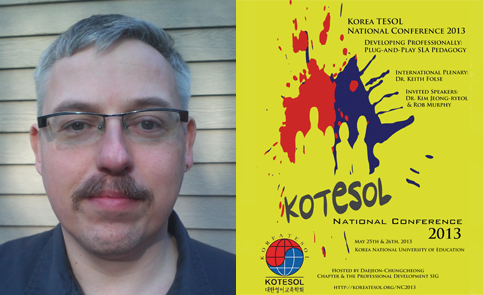
Not HOW But WHY: An Introduction to Speech Act Theory
Bryan Alkema
Abstract
Have you ever wondered why the words ‘don’t worry’ cause you to feel anxious, or why some people say that latest K-Pop singer is ‘cool’ and others say he is ‘hot’, or why your girlfriend says everything is ‘fine’ when she’s clearly very angry? Speech Act theory offers a solution to these intriguing questions and more!
SA theory is a subset of the pragmatics-based approach to linguistics which puts forward the idea that every spoken utterance can be analyzed in three ways: the literal meaning of the words used, the intended meaning of the speaker (which may or may not be the same as the literal meaning), and the effect those words have in an absolute sense. Extension of this theory holds exciting potential both for contextualizing language use, and for making such language use more applicable in real-world situations.
This presentation is divided into three parts. The first part is a brief explanation of SA theory, including definition of terms, examples of speech acts, and a rundown of current research in the field (approximately 10 minutes). The second part describes some of the benefits of SA theory in the classroom, including motivation, more natural conversation, and the logical connections between speech acts and their place in longer conversations (approximately 15 minutes). The third part moves from theory to practice, consisting of some principles of how to apply SA theory in the classroom, such as recognizing how the same speech act can be carried out in different ways, directing students to identify speech acts within input sources, and using speech acts to create logically consistent and understandable conversations. Specific examples, using existing curricular materials, will be provided.
Bio-sketch
Bryan Alkema has lived and worked in South Korea for more about eleven years and currently teaches courses in Conversational English and Professional English at Myongji University. He is completing his Master’s in Applied Linguistics, and is interested in integrating English language learning and usage into Korean society. He collects unusual neckties and may wear one to the presentation!


